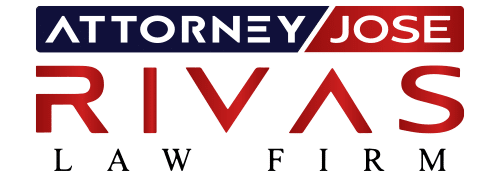In Florida, a plea bargain is a negotiation with the prosecutor for a deal that would let you plead guilty to a lesser charge so you get a more lenient sentence. Prosecutors like plea bargains (or plea offers) because they save them time, trouble, and expense. It’s a much easier way for them to obtain convictions than taking everyone to trial.
Negotiating a plea comes down to getting the best deal you can under the circumstances, so it pays to be represented by an aggressive and experienced criminal defense attorney who knows how to weigh the options and work the system to your advantage.
The main thing in a plea bargain is to make an informed decision. Given what’s at stake, you need to understand the potential advantages or drawbacks of any plea deal on offer.
The Plea Bargain Process
Navigating through the plea bargaining process in Florida involves a series of steps, each critical for both the defense and the prosecution.
- Initiation of Negotiations:
- The process begins when the prosecution team evaluates the case and decides whether to offer a plea deal, including the terms of the plea agreement.
- Discussions can take place at various stages of the criminal process, often influenced by the strength of the evidence or the admissibility of certain information.
- Strategic Considerations:
- The defense attorney plays a pivotal role by reviewing all case details and advising the client on the merits of accepting the plea bargain versus proceeding to trial.
- Terms of negotiation can include reducing or redefining charges, agreeing on penalties such as jail time or fines, dismissing some charges in multi-count cases, and considering probation instead of jail time.
- Judicial Oversight:
- After reaching an agreement, any plea bargain requires a judge’s approval. While judges typically agree with the prosecutor’s recommendations, there’s a chance of disagreement.
This structured approach ensures that both parties have the opportunity to negotiate terms that are fair and reflective of the circumstances of the case, with judicial oversight providing an additional layer of scrutiny and fairness.
Types of Plea Bargains in Florida
It’s important to know that there are different kinds of plea bargains:
- Charge Bargaining
- Definition: The defendant agrees to plead no contest or guilty to a less serious charge. In exchange, the more serious charge is reduced or dismissed.
- Common Scenario: This is the most common plea deal because the defendant can avoid the original charges that may carry very severe penalties.
- Sentence Bargaining
- Definition: Where the defendant agrees to plead guilty to the charges but gets the prosecutors to recommend a more lenient sentence.
- Consideration: Prosecutors may recommend a specific, more lenient sentence.
- Fact Bargaining
- Definition: The defendant agrees to acknowledge certain facts in exchange for the prosecution not bringing up other facts at the sentencing.
- Usage: This type is less common but can be strategically important, especially in cases where specific facts could heavily influence sentencing.
Prosecutors offer different kinds of plea bargains depending on circumstances like a defendant’s criminal record, the severity of the crime, or if there is a mandatory minimum sentence involved.
Advantages and Drawbacks of Plea Bargains
Plea bargains in Florida offer a complex mix of advantages and drawbacks, each impacting the defendant’s decision-making process. To get the best possible deal, you’ve got to fully understand the position you are in.
Advantages of Plea Bargains:
- Efficiency: Plea bargains expedite case resolution, saving time and resources for both the court and the defendant.
- Cost Savings: They reduce legal fees and court costs.
- Predictability: Offer a more certain outcome than the unpredictability of a trial.
- Reduced Penalties: This may result in lesser charges or more lenient sentences.
- Resource Management: Help alleviate court backlogs, making the judicial system more efficient.
Drawbacks of Plea Bargains:
- Admission of Guilt: Requires defendants to admit guilt, potentially impacting those who maintain their innocence.
- Waived Rights: Defendants give up the right to a trial by jury and potentially other legal protections.
- Criminal Record: Results in a criminal record, which can have long-term consequences.
- Potential for Coercion: The negotiation process might pressure defendants into accepting deals, especially in cases of unequal bargaining power.
- Limited Appeal: Plea bargains are generally final, with limited opportunities for appeal.
This balance between benefits and potential pitfalls underscores the importance of making an informed decision with the guidance of an experienced and aggressive criminal defense attorney. Call 407-644-2466 today to talk to an Orlando criminal defense attorney at the Rivas Law Firm.










